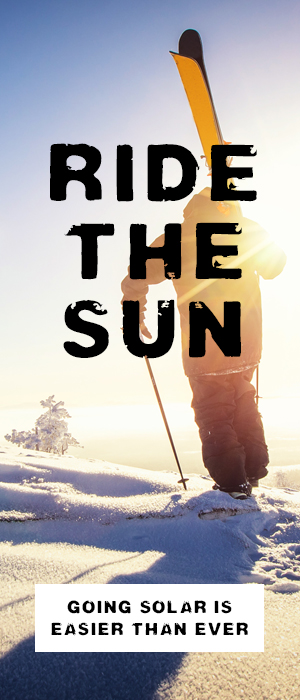Nothing beats that first run on a perfect powder day, with fresh snow underfoot and blue skies overhead. If you are a skier or snowboarder, this is the adrenalin-pumping moment you live for. And if you want to enjoy it properly, you need to be healthy.
The broken legs of skiing’s past have been largely eradicated by improved equipment. But skiers and snowboarders still suffer from a myriad of acute and ongoing injuries. Ankles, shoulders, feet and especially knees are particularly vulnerable to the stresses and contortions of high-energy skiing and snowboarding.
A torn ACL can turn a great season into a serious disappointment, so if you plan on spending your winters shredding powder instead of slumping on the couch, you might consider a few simple tips from health care professionals on how to plan ahead to avoid snow sports injuries.
|
Brought to you by our Sponsor:
Advantage Orthopedic and Sports Medicine Clinic has been serving the Portland and Gresham communities with optimum medical care for over a decade. The clinic’s surgeons and health care professionals specialize in general orthopedics, sports medicine, arthroscopy, joint replacement and podiatric medicine. They practice preventive medicine as well as surgical procedures for injured shoulders, elbows, wrists, hips, ankles and knees. Advantage Orthopedic and Sports Medicine Clinic accepts most major commercial insurance plans. The clinic is located at 24076 S.E. Stark, Suite 110, Gresham, OR 97030. The phone number is 503-661-5388. |
The following suggestions come from the medical professionals at Advantage Orthopedic and Sports Medicine Clinic in Gresham, Oregon, near Mount Hood.
- Maintain your fitness. You don’t need to try to match the rigor of Mikaela Shiffrin’s workouts, with her unicycling-while-juggling acrobatics. But you do want to maintain core and leg strength, cardiovascular fitness and flexibility. Biking, jogging, ab workouts, jump rope, yoga, Zumba, Stairmaster sessions and intelligent weight training are all good training for snow sports, provided you know your limitations and don’t overdo it. What you do to stay in shape is a matter of personal preference — the key is to stay active year-round.
- Warm up properly. It’s always tempting to catch the first lift to the top of the mountain, head for the steepest slope you can find, and go for it. If you’re Jeremy Jones, that approach could work just fine for you. Although come to think of it Jones is a master of warming up properly, since he climbs to the summit before shredding down the terrifyingly steep lines he prefers. For the rest of us mere mortals, it makes sense to take a warm-up run or two first, to find the rhythm and get the blood flowing. It also helps to stretch out your muscles a bit before diving into the steep and deep, especially your quads and hips.
- Stay hydrated. This is an easy one to neglect, especially when conditions are good. Who wants to go into the lodge for a water break when the snow is perfect and the sun it out? It can also be hard to avoid the caffeine-in-the-morning, beer-in-the-afternoon, Red-Bull-all-day trap that dehydrates skiers and snowboarders more than they realize. Take it from the folks at Drink Water, and, well, drink water. A hydrated athlete will outperform a dehydrated athlete 10 times out of 10.
- Use appropriate equipment. It can be tempting to try to squeeze another year out of those old boots or bindings, but keep in mind that faulty gear can lead directly to season-ending injuries. Go with the modern boots, bindings and boards; if your equipment is old and out of date, you are better off renting.
- Know your limits. Sure it would be fun to rip a hips-on-the-snow racing turn like Ted Ligety, or to send it off a cliff like Sammy Carlson, but do you really have the ability? Really? Consider a lesson or two to build your skills, and don’t take risks you will later regret.
Those simple tips should help keep you healthy for another fine year enjoying the mountains. There is no guarantee that you won’t be unlucky enough to get injured, but as Dr. Louis Pasteur famously said, “Fortune favors the prepared mind.”
Last modified: October 29, 2014


